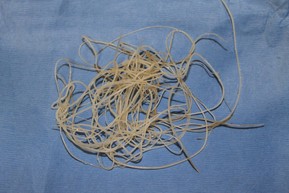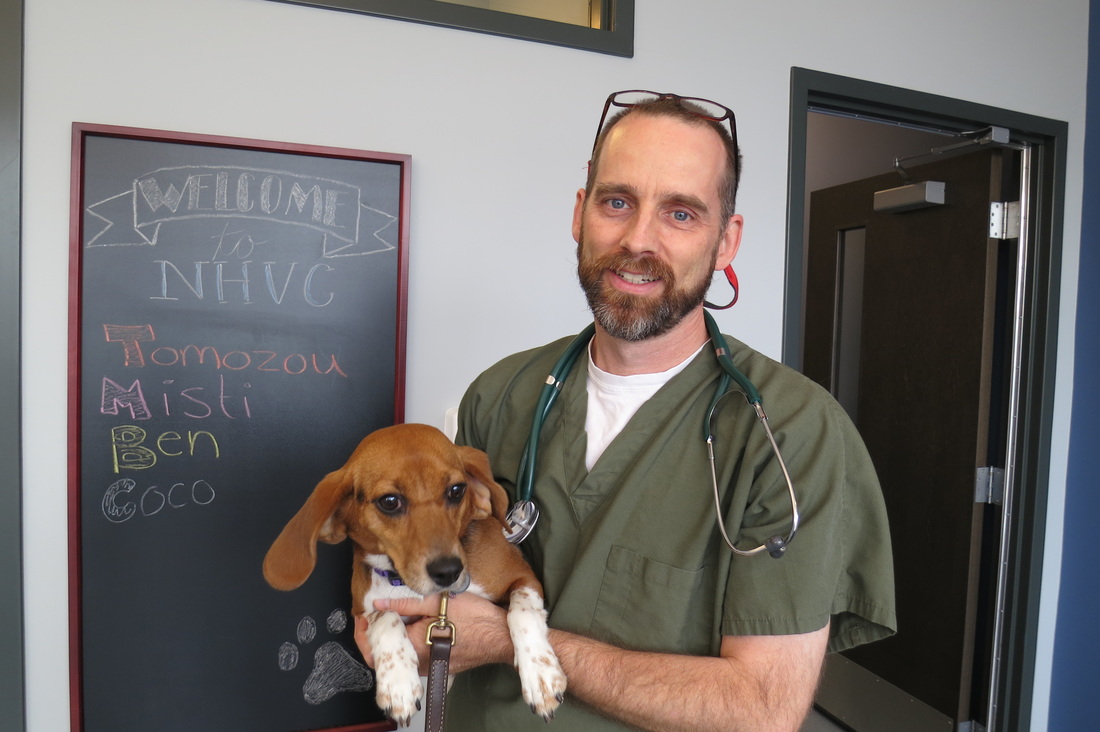NEws/BLog
|
Mystery Canine Respiratory Illness
To date we have not seen any unusual cases or respiratory illness in any of our patients. We are monitoring the situation and will post updates of any reliable information that we can find.
You can find the latest update from the University of Illinois School of Veterinary Medicine on the current situation and steps you can take to protect your pet at the link HERE. Heartworm- Prevent it so you don't have to treat it!
A common question I get is whether or not it is really necessary to give dogs heartworm preventative. Usually the owner is concerned about overmedicating their dog. This simple answer is: Yes. It really is necessary to prevent heartworm. How likely is your dog to get heartworm if they aren't on preventative? In Cook County they track the prevalence of heartworm in coyotes, and the prevalence is about 41%. Coyotes of course are not on heartworm preventative. So if your dog isn't on heartworm preventative, you might imagine that there is about a 41% chance they could contract it. Of course most dogs don't spend 24 hours a day outside like coyotes do. But mosquitoes find their way into houses too. I have diagnosed dogs who allegedly are seldom and only briefly outside with heartworm disease. Let me describe what happens if you don't use the preventative. Heartworm is transmitted via mosquito bites. From the transmittable larval stage it takes about 6 months to develop to the adult stage. It is the adult stage that we are able to test for. So if your dog tests positive for heartworm, it already has adult heartworms living in its pulmonary artery. Hearworms are in the nematode family, the same family as earthworms, and they are large enough to see with the naked eye. |
Once that is complete, the heartworms should die, but they don't just disappear. Now your dog has dead heartworms in their heart, which isn't much better than live ones. As the dog's immune system slowly breaks these dead worms down and removes them, there is a risk that these small bits will cause a blood clot in the lungs which can be fatal. In order to prevent that from occurring, we recommend continued cage rest with minimal activity until the dog is rested as negative for heartworms, usually 4-6 months after the treatment has been concluded. So cage rest for about a 5-9 month period altogether.
The moral of the story here is: it's much better to prevent heartworm disease with a monthly medication of some kind, than it is to have to get rid of these worms after the fact.
Raw food diets have become more and more popular over the last several years. Pet owners are either feeding their pets diets entirely consisting of raw foods, or often supplementing more conventional diets with raw animal products as treats.
The question is: Are these raw diets beneficial for your pet?
There is, as of right now, no scientific study that shows that feeding raw diets will benefit your pet in any way compared to regular pet foods. There is no study that shows that raw diets will lead to improved health or longer life for your pets.
There are a number of studies and case studies, however, that have shown that there are some health risks associated with feeding raw diets. Using a raw diet exclusively or even feeding raw diets as treats, can potentially cause an imbalance in the diet (for example, too much fat). More importantly, raw foods have an increased risk of being contaminated with harmful organisms such as Salmonella. These harmful bacteria can cause vomiting, diarrhea, or even death in your pets. And they also pose a risk to the human members of the family who have handled the raw foods, or who have handled the pets after they became ill, or in some cases, just carriers of Salmonella or one of the other pathogens associated with raw foods.
For more information, check out this link to the Tufts University vet school's nutrition department:
http://vetnutrition.tufts.edu/2016/01/raw-diets-a-healthy-choice-or-a-raw-deal/


 RSS Feed
RSS Feed